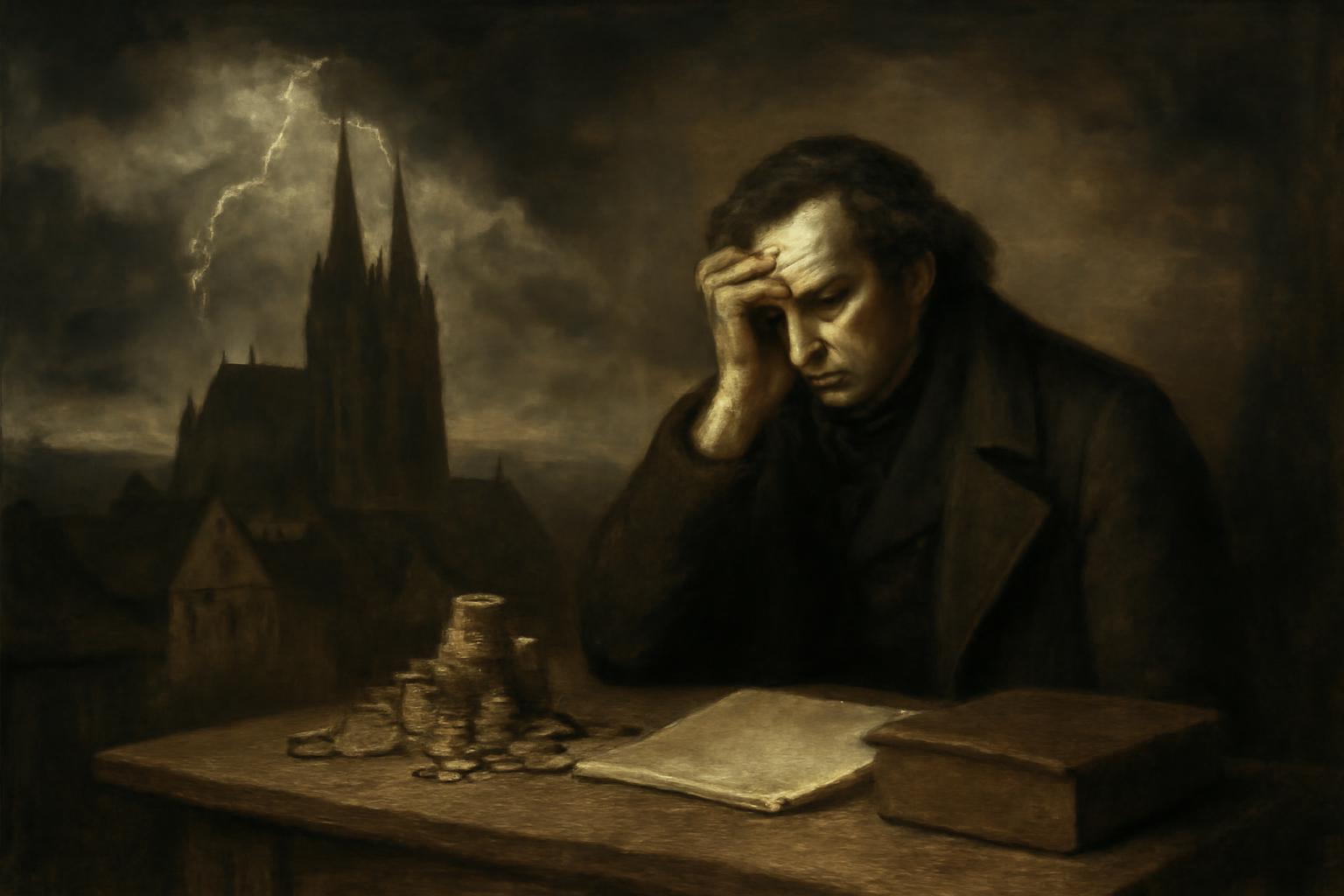As Prometheus bound, so too is the German state lashed to the ever-higher peaks of fiscal ambition, its sinews stretched by the record sum of 126 billion euros—a torrent of coinage promised, not out of Dionysian excess, but under the tragic compulsion to revive a waning economic spirit. Investments meant for education, infrastructure, and the spectral promise of digitalization parade like offerings cast before a fickle oracle, each sector aching with the hope of regeneration, yet shadowed by the specter of decay.
The minister’s rhetoric is grand, imbued with the faith of the Enlightenment—growth, “booster” initiatives, the “building turbo”—but this is a faith haunted by the battered legacy of Goethe’s Faust, who sought mastery, only to encounter the abyss of desire itself. Even measures for justice, like the mother’s pension and commuter allowances, are but faint echoes of a distributive ideal—one easily shattered upon the rocks of actuarial reality. The lament rises as government debt per capita crosses the dread Rubicon of 30,000 euros, a number that stands not as a badge of progress, but as a cenotaph, inscribed with the names of unborn generations destined to inherit a Promethean penalty.
In invoking economic growth as medicine for malaise, the minister unwittingly echoes Nietzsche’s Zarathustra, whose thunderous calls for transvaluation now seem mere reverberations in the echo chamber of the present’s exhausted values. There is talk of “modernization,” “justice,” and the “collective effort,” but beneath such torch-lit words looms a tragic impasse. Each exhortation to saving, each incantation to find efficiency within ministries, strikes as a chorus in Sophoclean tragedy—uttered too late to avert catastrophe, too circumscribed to alter the arc of fate.
And so we come, once more, to the hour of crisis endemic to modernity—the debt-laden state, pledging “action” for a world that trembles at the gates of catastrophe, with Putin’s shadow lengthening over the continent. Interest, like a curse, compounds upon every borrowed euro, binding the polity ever-tighter to a future mortgaged beyond its means. The cry for modernization crackles with irony, for each step forward is burdened with the melancholy that this, too, may breed only further disenchantment, just as Nietzsche prophesied the twilight of idols.
When Western culture clung to the tragic wisdom of Greece, it knew how to weep for its heroes as they shattered themselves against necessity. Now, caught between a nostalgia for lost greatness and the empty optimism of progress, it risks sinking into the mire of what E.M. Cioran named “the burden of having to hope.” The future, no longer a gleaming horizon, appears as a dim-lit stage—scarcely illumined by the dying embers of the very ideals it once bore aloft.
